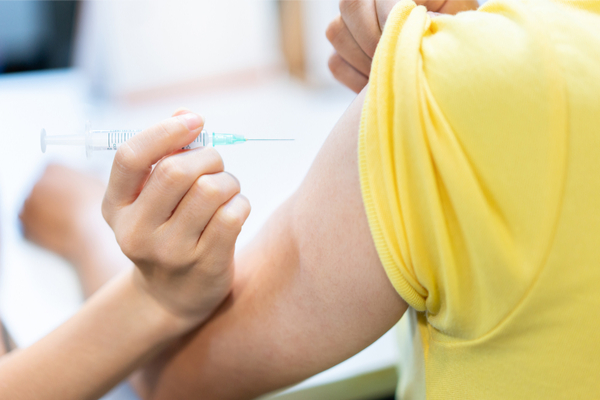As the number of measles cases in the United States has surged, some officials are encouraging parents to get their children vaccinated sooner rather than later. Normally, kids would get their first measles, mumps, and rubella vaccine when they’re about a year old, but given the rise in cases, babies in areas with ongoing measles outbreaks may be able to get theirs earlier in an effort to keep some of the youngest and most vulnerable members of those communities safe.
The Centers for Disease Control and Prevention just reported that the number of people infected with measles in the US continues to climb, reaching 704 as of April 26th. That’s the highest case count since 1994, and 2019 still has eight months remaining for that number to rise. The CDC blames misinformation about vaccines for driving undervaccination, which has allowed measles to spread in the recent outbreaks. The vast majority of cases in this most recent outbreak were linked to communities with low vaccination rates.
Young children, babies, pregnant women, and people with weakened immune systems are especially at risk of suffering complications from the incredibly contagious virus. That’s why health officials are doing everything they can to encourage people in areas with active measles outbreaks to get vaccinated, including — in some places — lowering the recommended vaccination age.
In New York, which has seen hundreds of measles cases since last fall, the state’s Department of Health has given doctors the go-ahead to lower the vaccination age to six months in areas with ongoing outbreaks, according to Erin Silk, a spokesperson for the department. New York City Mayor Bill de Blasio has ordered that everyone — including babies as young as six months old — get their measles vaccinations.
The measles vaccine is safe and effective, despite the thoroughly debunked myth that vaccines cause autism. An extra measles vaccine at six months is very safe, too, according to Peter Hotez, dean for the National School of Tropical Medicine at Baylor College of Medicine. It just isn’t the norm because, under typical, non-outbreak circumstances, the vaccine may not be as effective for babies that young. “However, some babies could still benefit from early immunization during a true measles outbreak,” he says in an statement emailed to The Verge.
Vaccines can help protect people against infections by essentially giving the immune system a training bout against a weaker opponent. The MMR vaccine, for example, contains weakened versions of the live viruses. By fighting them off, the immune system develops a memory of how to respond if these viruses actually attack at full strength in the future. “The goal is to induce an immune response that’s the product of natural infection, without having to pay the price of natural infection,” says Paul Offit, director of the Vaccine Education Center at the Children’s Hospital of Philadelphia.
Babies are born with some passive immunity in the form of antibodies that they receive from their moms. After delivery and before they wear off, those antibodies help protect the infant during its first months. The timing can vary from baby to baby — some are protected longer than six months, others less. But if those antibodies are still around when the baby gets their measles vaccine, they may also glom onto the measles vaccine itself and neutralize it, preventing it from provoking enough of an immune response to protect the baby over the short or long term. That’s why doctors recommend the first dose of measles vaccine when they do. But in outbreaks, that can change.
Some added protection may be necessary in outbreak situations where lots of babies could be exposed. Public health authorities might recommend adding an earlier dose for babies as young as six months old, according to Kristen Nordlund, a spokesperson for the CDC. The recommendation is for those kids to then be revaccinated when they’re about a year old and get the next dose when they’re between ages four and six, according to the CDC. Since the measles outbreaks in the US originated with people who visited other countries, the CDC also recommends in its recent measles update that kids older than six months get one dose of the MMR, and adults make sure to get their second before traveling outside the US. Hotez suggests that any parents who have questions talk to their kids’ pediatrician.
Making sure everyone who can be vaccinated is vaccinated is the best way to keep the virus from gaining traction in the US again, according to the CDC. As CDC director Robert Redfield said in a statement on Monday: “Vaccines are safe. Vaccines do not cause autism. Vaccine-preventable diseases are dangerous.”
—
Photo Credit: PhotobyTawa / Shutterstock.com
